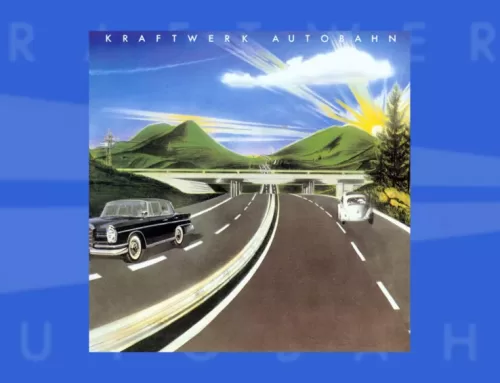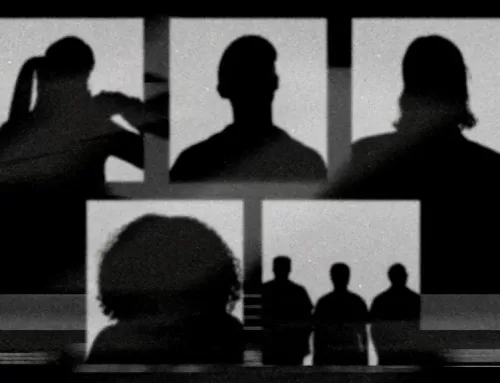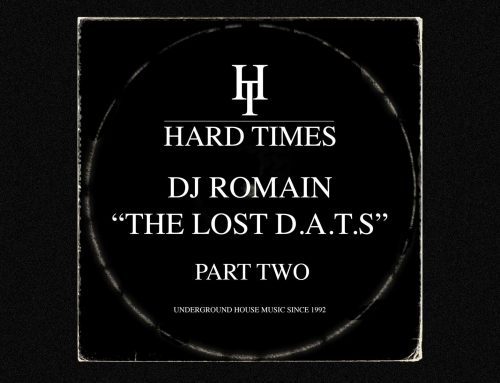
From negotiating contracts to safeguarding work-life balance, managers support every aspect of an artist’s career. Here’s what you should know about the role.
As the oil that keeps artists’ engines running, managers keep tabs on all the small, logistical elements, so the artists can focus on what they do best: being creative. But what else do managers do? It’s a position that is widely in demand, but rarely fully understood.
We spoke with five managers from Language of Sound, Modern Matters, ADMG, One House, and Starling Works to get a feel for the industry through their eyes.
What exactly is a manager? What role do they play in artists’ careers?
A manager role can be as broad or as focused as the artist wants. In general, managers are responsible for large-scale oversight of their artist’s career. For Callum Reece, who manages Eliza Rose as part of One House, the manager’s role “is to support the artists they work with, within every area of their professional career, working in partnership with the artist to co-curate a plan and structure that best allows them to reach both their goals and their potential.” This can include everything from “creative direction, business management, audience growth and development, and social media—to general life soundboarding, A&R, hype man, strategist, wider team manager and confidant,” he continued.
To the uninitiated, this may sound daunting. But take a step back and managers basically act as the “buffer between the artist and the real world,” added Niko Seizov of Starling Works. They handle the business-oriented parts of the industry so that the artists can focus on their art. Often, managers will hop in and offer input and foresight on creative projects as well, particularly on more image-based work that deals with PR, social media, press and other audience-facing parts.

In general, managers are responsible for large-scale oversight of their artist’s career, from creative direction, business management and social media to A&R.
How has the role of a manager changed with the times?
In the digital age, managers wear more hats than ever before. “Managers have to constantly update their thinking to best understand [new social] platforms and developments,” said Reece. Yet, despite these advances, “the main mission of the manager has remained the same: understand the artist’s story and vision, add fuel to that fire, and then take it to the individuals, communities and audiences who are going to value it.”
Modern Matters founder Ludovica Ludinatrice, who manages VTSS and LSDXOXO, explained that the role is also to “safeguard the artist’s private life and mental health.” Pursuing a career as an artist can be exhausting, and all the time spent traveling on tour, producing and releasing music, and posting non-stop social media content can lead to burnout. Being a good manager is about “making sure [the artists] have time for themselves,” Ludinatrice said. “It’s about helping them maintain a sustainable career, rather than treating them like a money-making machine.”
What are the different types of managers?
Many types of managers can be incorporated into an artist’s team at different points in their career. Tour managers are responsible for more of the day-to-day structure while on the road. This includes coordinating with venues, overseeing the riders and handling tour schedules. Social media managers help artists build their brand online, strategising their online output and creating key campaigns around releases and tours.
Thinking long term, “building a wider team of experts is crucial,” Reece said. “You need additional expertise across live performance and touring, release strategy, audience growth and development, business management, musical and creative direction, broadcasting, PR, marketing, legal expertise and publishing.”
While artist managers will typically oversee all these spheres, some top-tier acts will also rely on individual consultants for advice in more specific areas. Nevertheless, the core of the artist’s team is still the manager.
“They’re sort of like the cerebrum, required to foresee and oversee all aspects of the artist’s operation,” said ADMG’s Henry Moller, who manages Jyoty, among other artists. “The other managers and members of the team are vital organs.”

In the digital age, managers wear more hats than ever before. But their main mission remains the same: understanding an artist’s vision and putting it into action.
How involved are managers in their artist’s creative output?
This one is a bit of a wild card. While creative involvement isn’t technically in the job description, more often than not managers will find themselves involved in, or at least feeding into, key artistic decisions. In the music industry, business and art go hand in hand. Each manager’s approach to this differs, usually reflecting the wishes and expectations of the artist.
Artists’ creative work can include everything from music, visuals and graphics to branding, costume and artwork. Essentially, the more conceptual, world-building aspects. While some artists prefer to focus solely on music, others will want to have a hand in the execution of other related projects. This is a conversation usually breached between the artist and their manager, who will decide together which hats will be worn and which will be outsourced.
“Most of the acts we work with are intimately involved in the [non-musical] creative parts—bar a few who tend to be happy with us just working with designers or in-house and presenting them artwork,” Moller said. “Some talent like Jyoty often collaborate directly with illustrators after we’ve built the concept or discussed creative ideas together.”
For many managers, having some input into the creative side is important because, ultimately, it “impacts the energy running throughout an artist’s core… [which in turn] impacts the wider teams that fold around them and their audiences,” Reece said. As artist teams can contain many moving parts, it’s important to have a central figure who can make sure everyone is speaking the same language and pursuing the same vision.

According to Ludovica Ludinatrice, who manages VTSS and LSDXOXO, being a good manager is also about “safeguarding the artist’s private life and mental health.
How early in their career should artists get a manager? At what point do managers commonly enter the picture?
It can feel tempting to acquire a manager as early as possible. External and logistical support is always appreciated for artists who prefer to spend their time working on music. But all the managers I spoke to agreed that artists should always wait for the right time and person. A rushed process can lead to signing on with someone who isn’t fully aligned with the artist’s vision and ambitions.
Artists should also always aspire for a manager who, aside from knowing the ins and outs of the industry and being well connected, is a fan of their work. Language of Sound founder Alessia Avallone, who manages Lyra Pramuk, Gigi Masin and TYGAPAW, said “an artist should start to think about getting a manager first and foremost when they feel they need the proper support coming from the right person.”
Moller agreed. Artists, he said, “shouldn’t sign with someone until they feel they have to, and that can mean just physically needing to ease the strain, or for strategic or outreach purposes.”
But while managers can ease the load when it comes to business operations and industry connections, they won’t take the place of authentic relationships with day-one fans and supporters. Moller said he “encourages acts to try to build as many relationships as they can, especially with fans. Fans will tell the bookers, the labels and the agents who they want them to work with. Eventually everyone turns up when the fans are there.”

While it can be tempting to get a manager as early as possible, artists should always wait for the right time and person.
How to catch the attention of a manager and make sure they’re right for you.
The best way is to continuously and strategically put out quality work. According to Reece, the moments in which he felt especially drawn toward an artist have almost always been “off the back of an impactful and spicy moment. It can be in the form of a release, or a show where everything clicked. Those moments are rarely random or by chance. Serious graft and thinking comes before that.”
His best advice? “Don’t just think about throwing that one release out for the sake of it. Think about the why, the context, the impact, the delivery and what comes after and what comes after that.” Always think strategically and remember that everything you put out as an artist could be seen by anyone.
The best kind of manager, Moller said, is “a fan who’s a great operator and able to think across various concepts and focuses simultaneously.” The manager first and foremost must understand the artist’s repertoire, they must share the same vision and speak the same creative language so as to streamline collaboration and minimise miscommunication.
It’s also important to find someone who the artist can “connect with on a human level because if it works out, they’re going to be spending countless hours together!” said Reece. The lines between the professional and the personal may blur in the midst of global tours and creative vulnerability, so it’s important to find not only a good manager but someone you like and see eye to eye with.
For Avallone, a shared taste in music will also help. “It’s essential that there’s more talk behind the scenes about sound,” she said. This level of compatibility is incredibly important for a smooth, functioning relationship between artist and manager, especially if there’s a lot of creative involvement on the management side.
Do all artists need managers?
While having a manager is usually a boost in the industry, not all artists are in the same boat. Managers often only become necessary when artists have diversified their pursuits and need assistance manning the bigger picture of their careers, in terms of publishing deals, press campaigns, larger-scale touring and more.
“It depends on how complex their career becomes,” Ludinatrice said. “For instance, a DJ may not need a manager, especially early on in their career. But if they produce and release music, remix and produce other artists, sing and write lyrics, seek visibility in the press, design fashion collections and have an extensive live tour with a team—then it makes sense to consider a manager.”

It’s important to find someone who the artist can “connect with on a human level because if it works out, they’re going to be spending countless hours together,” said One House’s Callum Reece.
What cut of artists’ fees do managers take as payment?
Splits between artists and managers always favour the artist. Contracts vary, but the standard agreement is managers take 20 percent of all the artist’s earnings, whether that’s gigs, brand deals or royalties. For example, in the majority of independent label deals, the splits are 50/50 between artist and label, with the manager taking 20 percent of the artist’s share.
According to Reece, the “standard terms would outline the length of the agreement, and the activities that are covered within the agreement.” On the legal side, most contracts include terms such as the obligations of the manager and artist, the termination clause of the agreement—including sunset clauses / post-term commission—and the ownership of music, royalties and splits once the contract has ended. (Sunset clauses are agreements to remunerate the manager for a period of time after they part ways with the artist.)
Essential contract tips.
Artists must, Ludinatrice noted, own their own music. Some deals proposed to upcoming artists will offer small royalties and exposure, in exchange for the label owning the music. These should be avoided at all costs as the artist should always, at the end of the day, own the rights to their music.
Reece cautioned that artists should “avoid the term ‘in perpetuity’ at all costs. For an artist, your intellectual property is everything.” Giving away the complete rights to their music may set the artist up for failure down the line. Seizov even suggested that artists should “speak with lawyers if possible” when discussing the specifics of label and publishing deals.
Moller warned artists to beware of dead-end clauses such as ones that allow management companies to continue collecting money from artists even “seven years after they’ve been fired.” Once a contract ends, or once a partnership has been terminated, the management company should stop receiving payments from the artist’s work—save for the projects they worked on together.

Forward thinking and planning in advance are integral for a successful career. “Thinking together in eight, 12, 14-month cycles” can help alleviate last-minute stress, said Language of Sound’s Alessia Avallone.
How can artists and managers work best together?
Managers “should let the artist’s imagination run wild and work with what comes of it,” Avallone said. In a symbiotic relationship between artist and manager, it’s important for both to respect each other and their separate inputs with a deep understanding of each other’s roles inside and outside the relationship.
This also comes down to trust. Managers must trust and respect the artist’s vision, and artists must trust that their manager has their best interests at heart. And, as Reece put it, “respect managers’ lives outside of typical working hours! We all know artists and creative minds go into overdrive and are off the cuff but having care and respect for your team is super important for everyone to consistently do their best work.”
He continued: “objective focused interaction is always appreciated.” Forward thinking and planning in advance are integral for a successful career, especially when dealing with multiple projects, events, deadlines and releases. “Thinking together in eight, 12, 14-month cycles” can help alleviate last-minute stress, he said.
And finally.
One of the most important things to remember is that the artist-manager relationship may become very close at points, blurring personal and professional boundaries. So it’s important to trust and truly care for one another. Above all “take care of each other and think without limitations,” Reece said.
“Management,” Avallone added, “is a complicated job, but we must have fun and balance the business with the creative. After all, music is a sacred language. We’re dealing with something you cannot touch, but you know it’s there.”

“Management,” Avallone added, “is a complicated job, but we must have fun and balance the business with the creative. After all, music is a sacred language. We’re dealing with something you cannot touch, but you know it’s there.”





Leave A Comment
You must be logged in to post a comment.